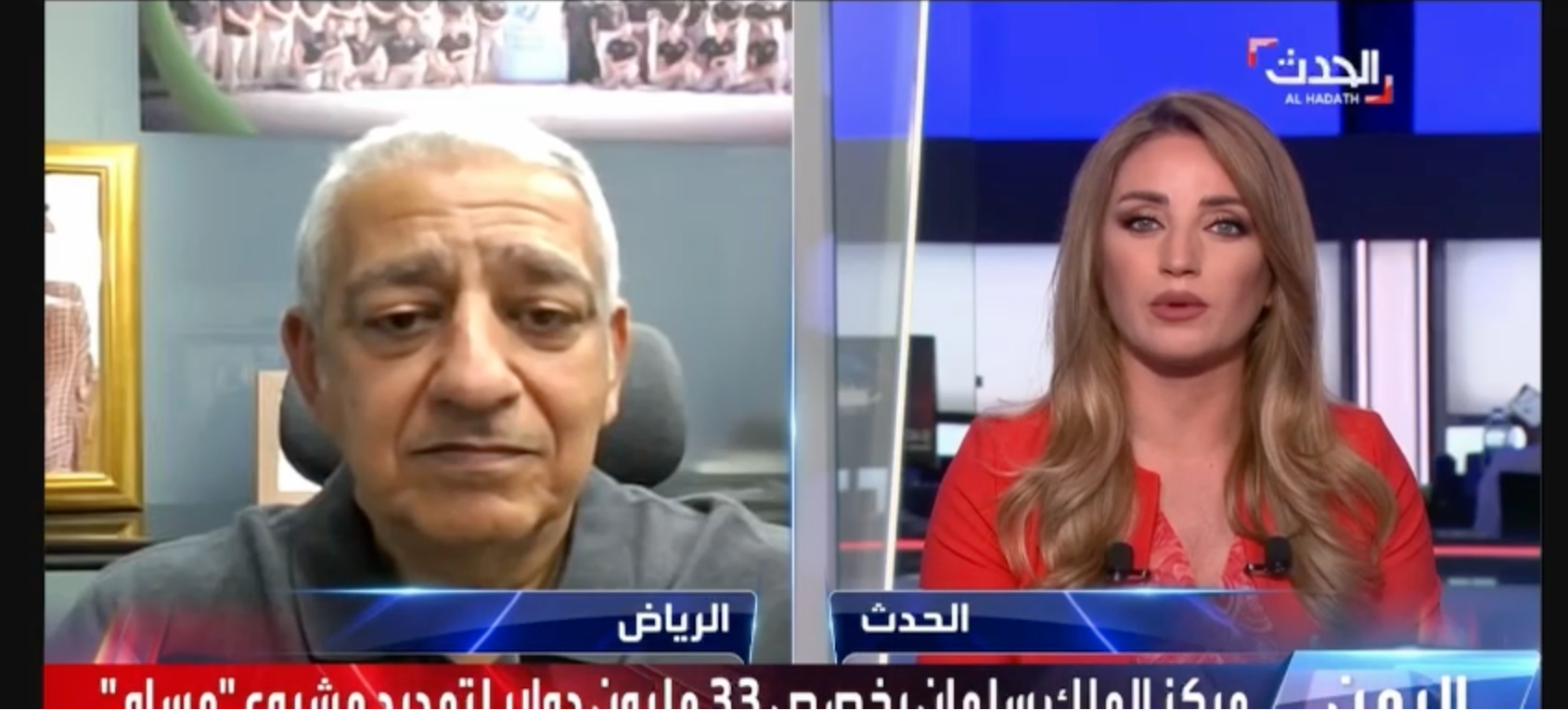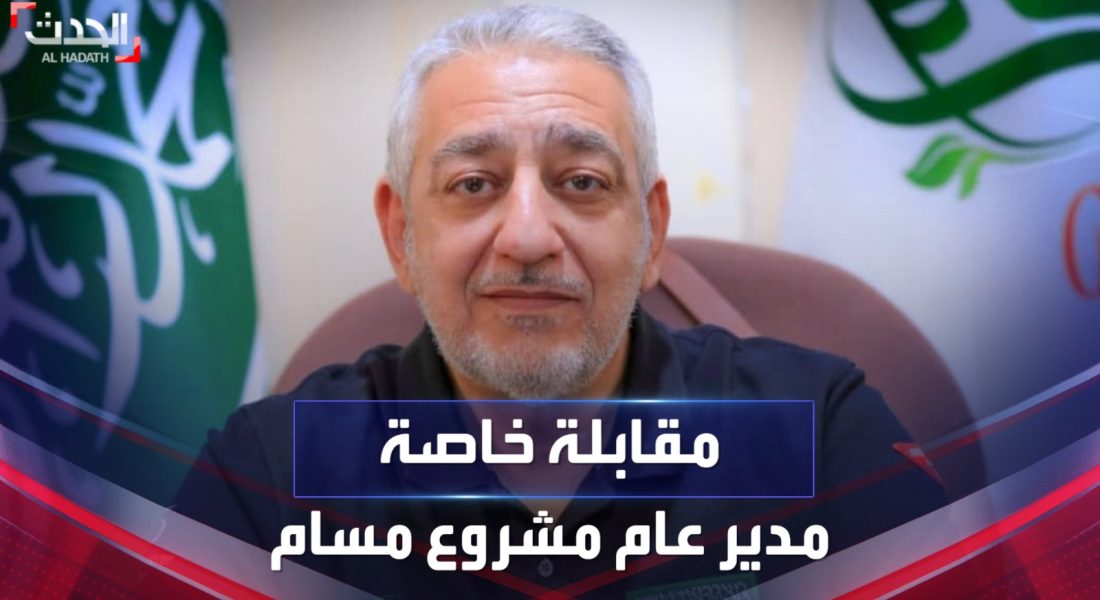Project Masam’s Managing Director Ousama Algosaibi has told Arab news channel Al-Ahdath the importance of continuity and adaptation when working in Yemen, a country where the largest amount of landmines have been planted since World World II.
Al-Ahdath is a news service from Al-Arabiya TV, which covers Arab events and developments and the implications of international policies on the region’s issues.
In an exclusive interview following the announcement of Project Masam’s contract extension for a consecutive sixth year, Algosaibi told Al-Hadath “continuity has been one of Project Masam’s most important characteristics since it launched in 2018”. At the end of each year, the work is evaluated, alongside the needs for the following year, allowing for the contract to be renewed with new objectives.
Obstacles and Challenges
Indeed, Taiz and the Western Coast are among the most mine-contaminated areas, and there daily injuries are recorded in these areas, Algosaibi explained. “Project Masam has contributed to reducing the number of injuries, though the clearance percentage has not [yet] reached 100%.”
“We have a humanitarian project working in the liberated areas that are far from the existing fronts in Yemen today, but we find landmines in areas that are difficult to imagine finding them there, such as schools for children, mosques, hospitals, water sources and grazing areas, this is the problem,” he added.
Algosaibi added that searching for and clearing landmines without maps and coordinates is a hard task. “Today, Project Masam is relying on technical survey teams working on the ground and exploring the areas. Local people, farmers and fishermen report injuries or explosions hat occur in their areas, and we immediately move to the scene and send our teams who would remain there until the whole area is completely cleared.”
This level of trust with local Yemenis is only possible because “Project Masam has great acceptance in the Yemeni streets and in the areas in which it operates”, Algosaibi said. “Our teams distribute leaflets to parents and children about the dangers of these mines and explosive devices and how to avoid their injury. Our contact numbers are open 24/7 which means we can move in, in case something is reported.”
The managing director explained that the Houthis signed the Stockholm Convention, which stipulates in one of its clauses the handing over of the coordinates and maps of the mines that were laid in the Republic of Yemen.
“But to date, no maps or coordinates of the mines planted in Yemen have been handed over”.
He continued: “The absence of maps is a small part of the challenges in our work. We also face challenges of geographical distance, spaces, and random farming. I thank all the people in Yemen in the areas in which we worked because they helped us greatly.”
Continuity and adaptation
Mine clearance operations are updated on a daily basis, so Project Masam must change its methods of work to constantly adapt. “We learn something new every day and change our work methods on a day-to-day basis. Sometimes one of the team workers finds a mine that we see for the first time, and therefore we start dealing with it directly,” Algosaibi said. “So, the training has never stopped since the past years, and we stick to the same approach of training and development in the coming period.”
Masam project is an impartial body which does not intervene in political issues or in affairs that fall at a higher level than its competence, Algosaibi explained, “because this is something that concerns the state, and we always mention this point and push harder through Masam media to enhance it.” The demining expert highlighted how “Western media and Western countries are unfair with regards to the landmine issue in Yemen, “and there are many issues that we talked about according to our capabilities as a project or as an executive body, but there are other governmental methods to be shown by the legitimate government and by other international organisations present in Yemen. These bodies have the authority to raise this matter directly to the United Nations and the relevant organisations.”
The King Salman Humanitarian Aid and Relief Center (KSRelief) has extended its contract for the implementation of the Masam project to clear Yemeni liberated lands of landmines planted by the Houthi militias for another year, and the project’s work continues for the sixth consecutive year to complete the humanitarian mission that began in Yemen in June of 2018.
To date, Project Masam has cleared 404,333 landmines, unexploded ordnance (UXO) and improvised explosive devices (IEDs) including 250,686 UXO and 7,829 IEDs, 139,566 anti-tank mines and 6,252 anti-personnel mines, with a total area of 47,249,479 square metres of Yemeni lands that were contaminated by mines, ammunition and explosive devices.
You can watch the full interview on Youtube here.


